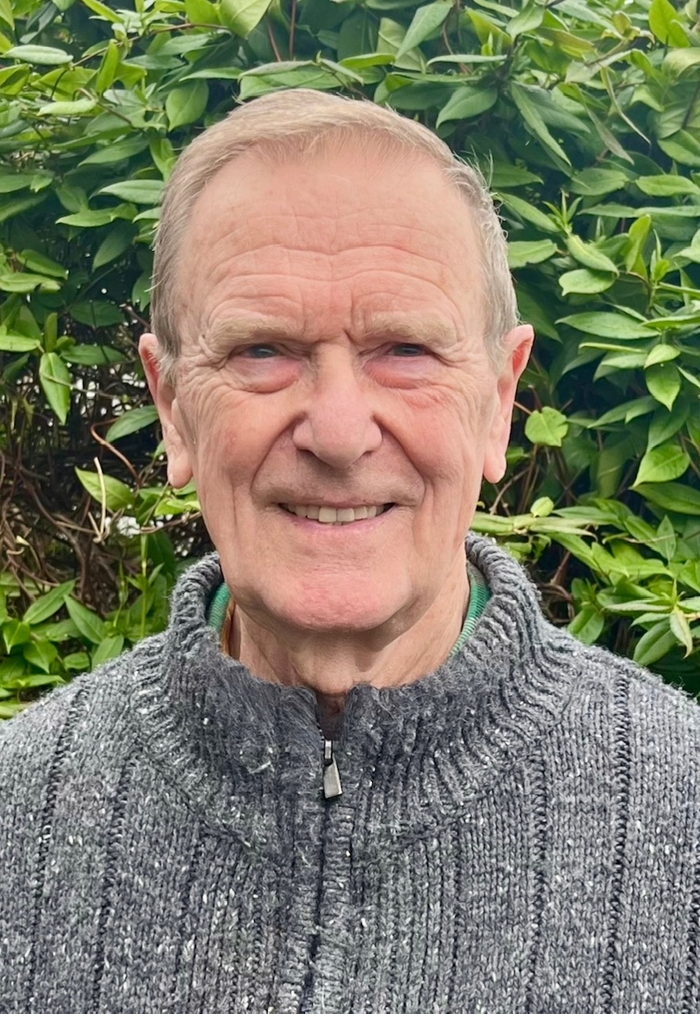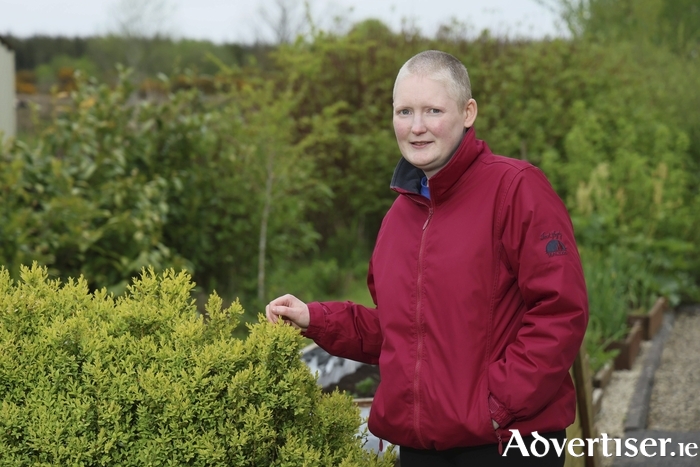"Is that a rub or a scrub?" Marie Curran's husband jokingly asks her when she washes the dishes. That simple chore can be a mammoth task for the 43-year-old Waterford woman who was diagnosed with myalgic encephalomyelitis/chronic fatigue syndrome (ME/CFS ) in 2012.
"I don't have the energy in my arms to scrub anything," she says, and so, my response always is: 'One man's rub is another man's scrub!' And when I flick dirt under a chair with my sock, I'm asked: 'Sweeping the floor?'"
She says both she and her husband, who live in Colmanstown, have a dark sense of humour. It is an important quality when you are coping with the many challenges that Marie faces day-to-day. It helps her to laugh at situations rather than bemoan them, and ultimately, see the lighter side of life.
She first began to feel unwell in 2011 after developing a cold/sinusitis. She was working in finance at the time and was very busy so she did not take time off work, instead battling on with the help of over-the-counter medication. She suffered from sinusitis regularly so was not overly concerned. She was young (34 years of age ),"incredibly" fit (she took part in the 26 mile Dublin Marathon in October of that year ), and healthy, so there was no reason to believe she would not shake off this illness quickly.
However, 10 days later she was still feeling unwell and, in addition to the sinusitis infection, she was now experiencing extreme exhaustion. She says she hopes some day a new term will be devised for the words ME fatigue. "To call it fatigue, is to call a 20 foot snowstorm a little flurry". Other symptoms followed including a sore eye, puffy face, soaring blood pressure, and mental confusion. She would have to stop for a nap while driving to work and found it difficult to understand what the various traffic lights meant. Her GP referred her to a specialist who diagnosed her with ME. She recalls returning home afterwards, and "crying like a baby for two whole days".
"I realised I had to stop working," she says. That was May 2012. Since then, she has learned how to live with ME, a complex and debilitating physiological illness which can worsen with physical or mental exertion. Those affected complain of exhaustion, fever, sore throats, painful glands, muscle weakness, headaches, and joint pains, according to the Irish ME/Chronic Fatigue Association. Other symptoms include sleep disturbance, confusion, irritability, and poor concentration.
"Once I stopped pushing myself into 'crashes', [a worsening of ME symptoms after physical or mental activity that resulted in Marie being confined to bed for 10 days at a time], I found what I call a stable baseline by 2015," she says. "By this, I mean I managed my symptoms via pacing. So, instead of visiting friends or family, and 'crashing' for days or weeks after, they began coming to me when I'm able for visitors. And instead of pushing to sweep that dirty floor, I just left it! I also cut my hair up short - donating my locks to the Rapunzel Foundation [it collects ponytail donations to provide wigs for long term hair loss sufferers] - as my arms were too tired washing and drying my hair."
She avoided relapses and, on a good day, was able to potter around her garden for half an hour and read a newspaper. "Of course, there were plenty of bad days thrown in, where I became what I call 'cognitively paralysed', where words evaded me and I was left pointing at a saucepan not knowing what it was called, and where I read through the newspapers and didn't remember any detail. On days like these, I hide from the world."
Unfortunately, she experienced a severe setback after receiving her first Covid-19 vaccine in January 2022. Within two hours of getting the jab, she was unable to stand without support and could only walk a few steps at a time. Her heart was racing and she felt lightheaded. Two weeks later, she began suffering from chest pains. An ECG (electrocardiogram which records the rhythm, rate, and electrical activity of the heart ) confirmed her resting heart rate was up and that she had developed additional, abnormal heartbeats known as premature ventricular contractions (PVCs ).
Resettle in time
"Through that year I was in and out of the AMU [Acute Medical Unit] in UHG, and was tested extensively after which I was placed on beta blockers [medicines used to treat heart problems and high blood pressure] to aid my heart rate," she says. "While all the doctors agreed I was suffering from an over-active immune response to the vaccine, all they could offer beyond betas was the hope my body would resettle in time.
"Thankfully, in September that year I ended up in the Mater Hospital in Dublin and was prescribed an array of meds which I've been told I will have to be on for life. By December 2022, my body began to improve. However, I never regained all I'd lost, reaching about 70 per cent of where I was pre-vaccine. And given my reaction to the vaccine, I'm now classified as unvaccinated and highly vulnerable to Covid-19 so I am still cocooning and any visitors only visit outdoors."
Marie began doing voluntary work updating the website of a garden society for an hour to one and a half hours a week. She could work at her own pace and enjoyed the role. However, in February her workload increased and this became too much for her.
"Even though it was only about an extra hour spread over a week, my ME symptoms began to worsen. My fatigue levels worsened, the headaches increased in frequency, the night sweats returned as did the bone pain. I knew it was quit or crash. So, I had to quit my role.
"And just to give me another reminder as to how precarious life is in my body, I developed shingles in March and am only just on the other side of that now. My ME has worsened once again as a result of that infection."
Despite ME dictating so much of her life, Marie remains upbeat and has not lost her sense of fun. Considering what she faces daily, this is a major achievement. She says she is as stubborn as a mule and refuses to let this chronic illness beat her.
"Sometimes, you can slip into: 'Why me?' But I'm not living in Gaza or Syria so I just suck it up. To be fair, I don't have black days. When I first got sick, a very close family member had a friend who they were 80 per cent certain had ME. But it was MND [motor neurone disease] and the person was dead within the year. So, I refuse to let ME beat me."
She says she is fortunate she met kind and caring doctors. "Not every one had the answers but I know of people who were told it [ME] was all in their head. My advice to people would be: Seek out a doctor who will be in your corner. If you have health insurance, I would suggest going to Dr John Lambert in Dublin [he specialises in the diagnosis and treatment of Long Covid, Lyme disease and other infections].
"He went through my medical history and noted that I got swine flu in 2009. I was really sick then, it took me six weeks to recover. He said that, and my illness in 2011, damaged my immune system. I would also recommend contacting the Irish ME/CFS Association. It offers really good support. Most of all, don't lose hope," says the woman who needs to go to bed at 7pm each evening, who struggles to read a newspaper because the "words keep moving on the page", and who can only see her parents and siblings about once a year to protect the little energy she has left.
International ME expert to speak in Galway
Dr Nigel Speight, a leading international ME expert, will give a free talk at the Maldron Hotel, Sandy Road on Saturday at 2.30pm to mark ME awareness month.
Dr Speight, a consultant paediatrician who previously worked at the University Hospital of North Durham in England, has 40 years' paediatric experience, 25 as a consultant.

"Over the last 30 years, I have extensive experience and interest in ME/CFS in childhood and adolescents," he says. "Within North Durham alone, I accumulated over 200 cases under my personal care. In addition, because of my special interest, I have had over 1,000 cases referred to me from all over the UK."
Dr Speight has also conducted extensive research into the illness. He lectures internationally on ME and was invited to Australia to lecture on his studies and his experience of cases where young people with the condition had been subjected to child protection proceedings by disbelieving professionals.
"I gave an invited lecture to an international ME meeting in Oslo in 2011, followed by one in Stockholm in 2014. I have since given further invited lectures in Amsterdam and Reykjavik. I have published papers on Severe ME in Children and Life-threatening Malnutrition in Severe ME” (the latter winning the Goudsmit prize )."
Orla Ni Chomhrai, the secretary of the Irish ME/CFS Association says this is the first time a paediatrician with expertise in ME/CFS will speak in Galway.
"His decades of experience in caring for ME/CFS patients, his knowledge of severe ME/CFS, and his involvement in producing various management and diagnostic guidelines for doctors on ME/CFS should make this a very informative talk. The meeting will also offer patients a chance to ask questions and to meet with other patients and their families. Getting a chronic illness can be an isolating experience for the patient and their families, so an opportunity to meet others in a similar situation can be of benefit."
Following the talk, which will include free tea/coffee and biscuits, there will be a question and answer session. For further information on the talk or on ME, contact the The Irish ME/CFS Association at (01 ) 2350965, email [email protected], log on to www.irishmecfs.org or write to the association at 12 Beechpark Lawn, Dublin 15.

